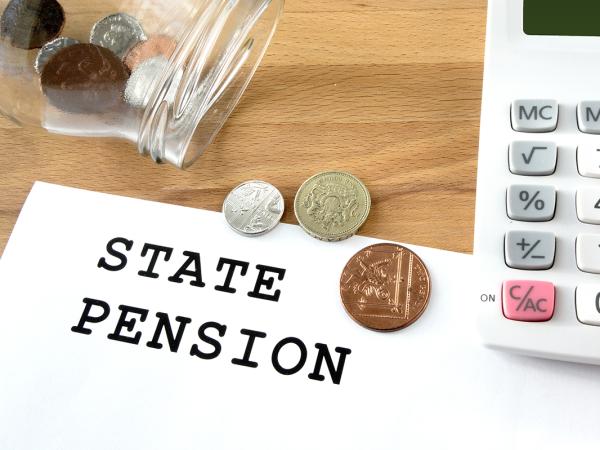Home Responsibilities Protection: did you claim child benefit before May 2000?
Some parents and carers who claimed child benefit before May 2000 may have missed out on Home Responsibilities Protection (HRP), a scheme designed to protect their state pension entitlement. HMRC are writing to people who they think might be affected to explain how they can check and claim for missing HRP.
Whether you are already claiming state pension, are approaching retirement age, or are still a fair way off from reaching state pension age, it’s important to check that your National Insurance record is not missing any HRP that you were entitled to. This guide will help you understand HRP, why some people missed out, and how you can make a claim now to maximise your state pension.

Content on this page:
Understanding Home Responsibilities Protection
HRP was a scheme designed to safeguard the state pension entitlements of parents and certain carers. Running from 6 April 1978 to 5 April 2010, HRP should have been granted automatically if you were claiming child benefit for a child under 16 during this period and you provided your National Insurance number when you claimed child benefit.
From 6 April 2010, HRP was replaced with National Insurance credits.
Why might HRP be missing from my record?
We understand that, prior to May 2000, it was possible to claim child benefit without giving your National Insurance number on the claim. If you didn’t provide your National Insurance number, any HRP associated with your child benefit claim might be missing from your National Insurance record.
From May 2000, it became compulsory to give your National Insurance number when claiming child benefit, so if you started claiming after this date, you shouldn’t be affected. However, if your child benefit claim started before May 2000, then it is possible that HRP is missing from your National Insurance record for all years up to and including 2009/10.
If you are a married woman or a widow, and before April 1977 you chose to pay National Insurance at the reduced rate, then you might not have been entitled to HRP. You can read more about this on GOV.UK.
What is being done about this problem?
HMRC have used National Insurance records to identify individuals who might have been entitled to HRP between 1978/79 and 2009/10 but have no HRP on their record.
HMRC have been contacting people by letter, giving further instructions on how to check their eligibility and claim any missing HRP credits. They are sending these letters in stages, contacting people who are already over state pension age first. We understand letters will be sent to people who have not yet reached state pension age over the next few months.
HMRC say that it is not possible to identify everyone who might be affected, so even if you do not receive a letter but remember claiming child benefit before May 2000, you should still check your position.
Why is it important to check your position?
If HRP is missing from your National Insurance record, and you do not currently receive (or are not expected to receive) the full state pension, then you should check if you can make a claim, for the reasons set out below:
- If you are already claiming state pension
-
- Increased pension entitlement: Correcting your record might increase your weekly pension payments.
- Arrears payment: You might receive back payments for the increased state pension amount from when you first became eligible.
An increase in state pension and/or receiving a back-payment of state pension might reduce your eligibility for certain means-tested benefits such as pension credit, housing benefit, or council tax reduction. If the additional pension income means you exceed the threshold for these benefits, you might receive less or lose entitlement altogether. You may wish to speak to a welfare rights adviser before making a claim for HRP.
You might also face a larger tax liability as a result of the increased state pension entitlement and/or any payment of arrears. We discuss the tax treatment later in this article under the heading: What happens next?
- If you are not yet claiming state pension
-
- Maximising future pension: Ensuring all eligible HRP credits are recorded will maximise your future state pension entitlement.
- Avoiding future hassles: Correcting your NI record now prevents future complications and delays in calculating your pension.
- Financial planning: Knowing your correct state pension entitlement helps with better retirement planning.
Steps for checking and claiming
We have set out some steps below that might be helpful in checking your position and making a claim if necessary.
Step 1: Check the eligibility criteria on GOV.UK
- GOV.UK gives information about eligibility, which will help you understand if HRP is likely to be relevant to you – and if you might have missed out.
Step 2: Check your national insurance record
If you think you might be eligible, you next need to check if there are any gaps in your National Insurance record. We outline how to do this in our guidance.
A ‘gap’ is any year(s) on your National Insurance record that says ‘Year is not full’.
If the gap in your record covers any years prior to 2009/10, where you believe you were claiming child benefit, then this might mean you are eligible to make a claim for HRP.
Tip: Once you have looked at the eligibility criteria and have checked your National Insurance record, you can use HMRC’s HRP checker tool. Using this tool is optional, but it walks you through the requirements and gives further reassurance as to whether you can claim for HRP.
Step 3: Apply to HMRC
If you conclude you are (or might be) eligible, and have identified the relevant gaps in your National Insurance record, you can apply to HMRC.
There are a few ways to do this:
- Apply online: You will need to have (or set up) a Government Gateway account to use the online service.
- Print and post: for this option, you will need to fill in the form on screen. At the end you will be able to print the form and then send it to HMRC.
- Call HMRC to request a paper form: if you do not have access to a computer or printer, you can call HMRC and ask them to send you a paper form, which can then be filled in and returned to them by post.
If you are worried or unsure about any of the steps above, then you can call HMRC’s National Insurance Helpline for assistance. Don’t be put off claiming if the process seems difficult – HMRC’s advisers should be able to help, reassure and guide you through the process if needed.
What happens next?
Once your application is submitted, HMRC will process it and let you know if it is accepted.
If your claim is successful, then HMRC will update your National Insurance record with HRP for the applicable years.
If you are already receiving state pension, HMRC will also notify the Department for Work and Pensions (or the Department for Communities in Northern Ireland). Any changes to your state pension payments will be processed and you should be notified of your revised state pension award.
You might also be entitled to a back-payment of underpaid state pension before your claim for HRP. HMRC have told us that any back-payment related to missing HRP will be taxed in the same way as agreed for a previous exercise where underpayments of state pension were identified. You can read about the tax treatment of such back-payments in our guidance. We will be encouraging HMRC to provide support to people who are in this position, and we will post any further updates on our website. If you are in any doubt about the tax position on an award received following a claim for HRP, you should contact HMRC for advice.
If you have not yet reached state pension age, then your state pension forecast should be updated to reflect the HRP awarded when your claim has been processed.



